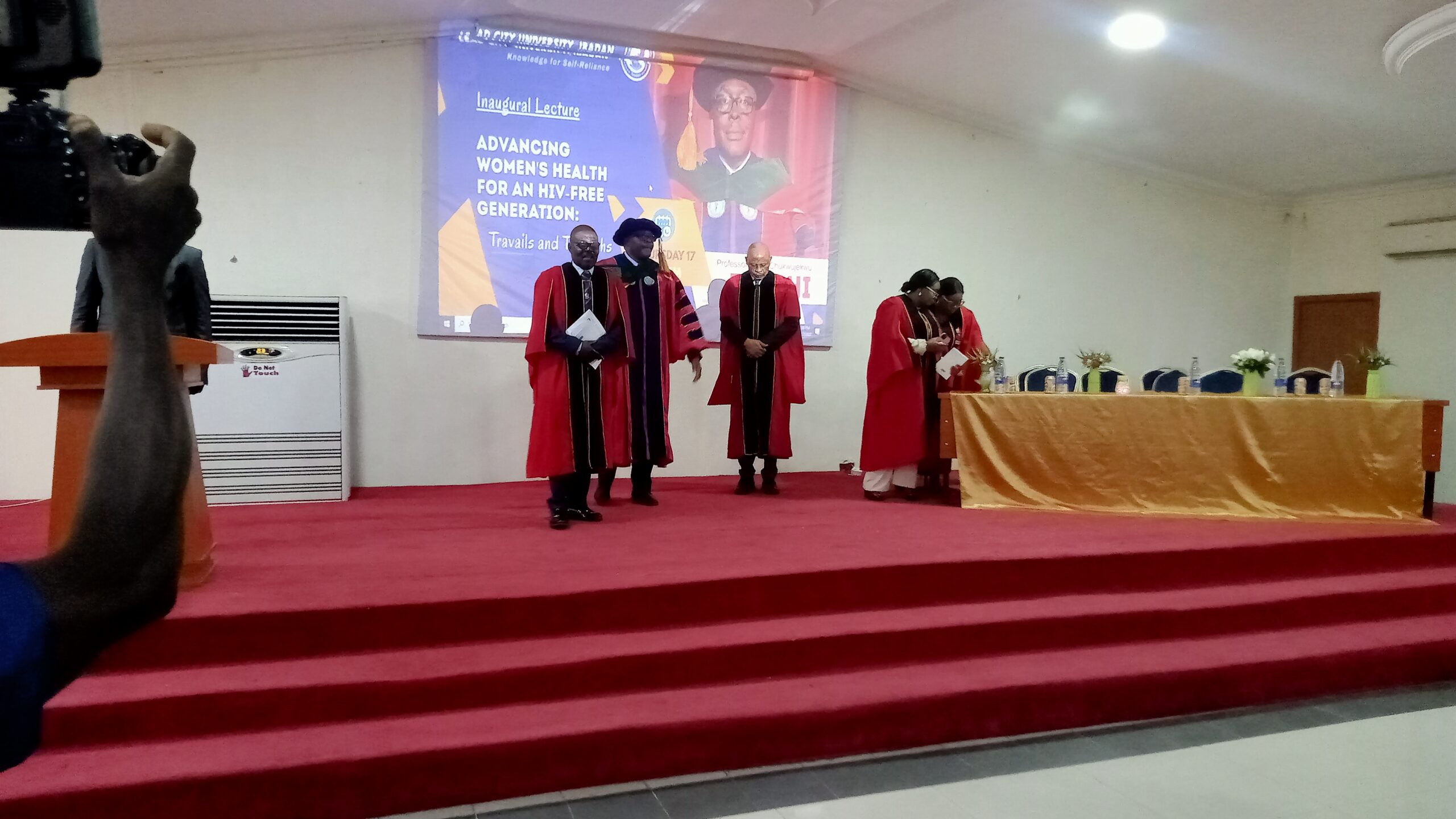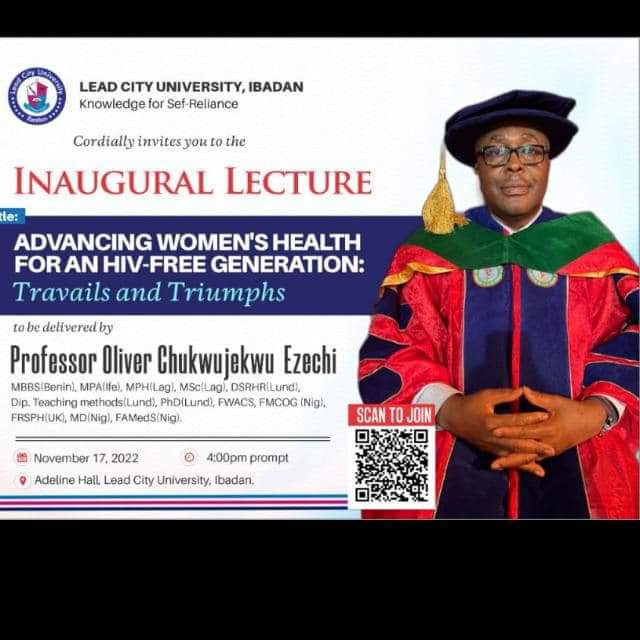
Prof. Oliver Ezechi of Maternal, Reproductive and Child Health, Lead City University, Ibadan, says Mother-to-Child HIV transmission can be less than one per cent in Nigeria.
Ezechi made this assertions on Thursday at the 15th Inaugural Lecture entitled: “Advancing Women’s Health for an HIV-Free Generation: Travails and Triumphs” held at the Lead City University, Ibadan.
He said the research carried out confirmed that it has become possible to prevent the transmission of HIV from the mother to her baby.
“Our team has provided a model for not only preventing mother-to-child transmission of HIV (vertical transmission), but also, prevention of horizontal transmission of HIV.
“We have produced evidence that has informed policy, shaped practice and in the process showed that it is possible to reduce Mother-to-Child Transmission (MTCT) rate to less than one per cent.
“We also observed that research is not fully accorded its pride of place and the evidence generated with the little funding available is poorly utilised,” Ezechi said.
He said it had become obvious to all present that the country had made progress in the HIV response.

“Elimination of paediatric HIV infection remains a major public health challenge.
“Our team has shown that it is possible to eliminate paediatric HIV, as the last three consecutive years did not record a single mother-to-child transmission of HIV to unborn babies.
“Let the achievement at one spur us all to action. Know your HIV status today,” Ezechi said.
According to him, HIV opens the door for other infections and once HIV comes in immunity is reduced and other infections like TB would start to come in.
“But, once we control HIV, the immunity is strong and the body can fight HIV infection,” Ezechi said.
The expert called for improved women’s health and increased support from men.
“Most things that lead to women’s ill health, majority are the low status of women and some cultural practices; abuse, women’s inheritance and other certain cultural practices that diminish their health.
“What we should do is that men should support women. Government should ensure that some of those cultural practices that are inimical to women’s health should be jettisoned.
“And, where it is difficult to jettison them, the government should do legislation and stop them.
“Once we do that, women’s health will improve; also, we should also support women,” he said.
The professor made some recommendations including that the government, organised private sector and institutions should prioritise research as vehicle that drives development.
Ezechi said aid that researchers should abandon pedestrian research and focus on those that address important national and developmental questions.
“Research products are meant to solve community problems; therefore, stakeholders should be engaged early in the process, if the output is to be utilised.
“Government, the public and academic institutions should as a matter of urgency, put in place strategies to utilise research product, otherwise the resources invested in research becomes a waste.
“Academic institutions should put in place capacity strengthening programmes for their faculties to make them globally competitive to attract research funding.
“Research funding attracted to academic institutions should be a component of advancement criteria,” he said.






